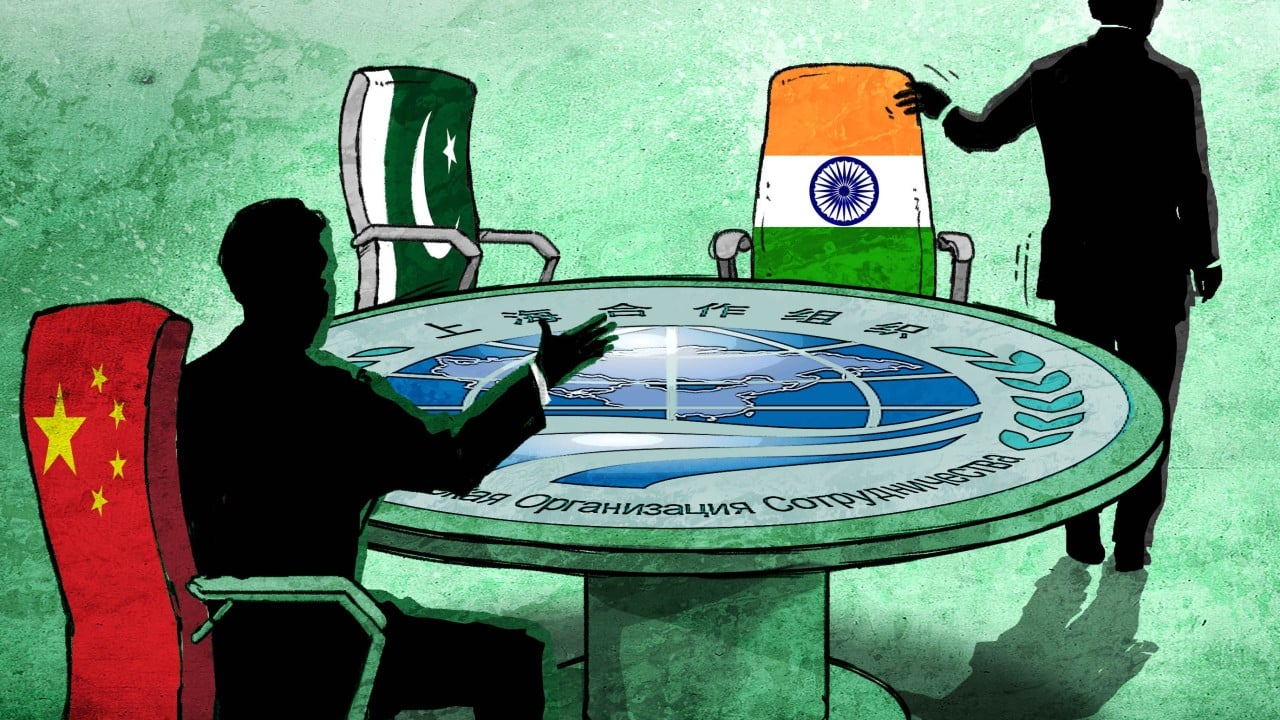Last month’s Shanghai Cooperation Organisation (SCO) defence meeting served not only as a curtain-raiser for the bloc’s summit in the autumn, but also as a test of Beijing’s broader ambition to promote a Global South-empowered multipolar world order.
Advertisement
Like Brics – the grouping of developing countries established by Brazil, Russia, India, China and South Africa – the Global South-oriented SCO is a showcase for China’s home-ground diplomacy.
Beijing has increasingly relied on these platforms to denounce hegemony and unilateralism while presenting itself as a defender of the Global South and emphasising its shared identity with the group.
However, the SCO and Brics require consensus in their decision-making, a rule that often highlights another contender for leadership of the Global South and a fellow member of both organisations – India.
When defence chiefs from the 10 SCO member states gathered in June at Qingdao, in the eastern province of Shandong, it was the first visit to China by India’s Rajnath Singh since the deadly clash between Indian and Chinese troops in the Galwan Valley in 2020.
Advertisement
It was also the first time that senior ministers from India and Pakistan had shared a stage since their conflict in May, which followed an attack in Kashmir that killed dozens of Indian tourists, with New Delhi accusing Islamabad of supporting those responsible.
The defence ministers were unable to adopt a joint statement at the end of their discussions because of a lack of consensus over its language on terrorism, according to the Indian foreign ministry.

